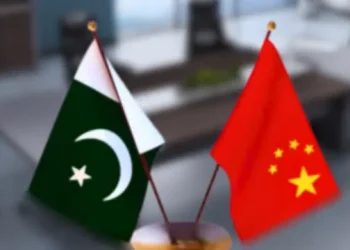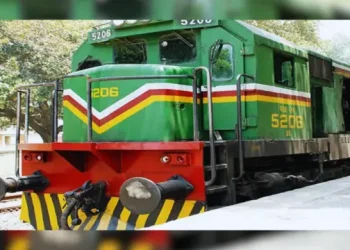ISLAMABAD: The International Monetary Fund (IMF) is set to commence discussions on November 2 regarding the release of the second loan tranche, amounting to $710 million. The government remains confident in its ability to successfully complete the program review, despite facing certain external sector challenges.
Although the IMF has not explicitly imposed such a condition, a clear announcement of the date for the next general elections could bolster the Ministry of Finance during the upcoming review talks for the July-September period of this fiscal year.
An IMF team led by Nathan Porter will initiate a mission to Pakistan on November 2 for the first review under the current Stand-By Arrangement (SBA), which is a $3 billion program. Esther Perez, the resident representative of the IMF, informed The Express Tribune about this development.
Initially, the IMF had suggested November 7 due to potential delays in compiling the first-quarter data. However, the Ministry of Finance reassured that all the necessary data is available for the review talks.
The first review discussions will focus on the release of the second loan tranche, valued at $710 million. The approval of this tranche by the IMF board in December is contingent on a staff-level agreement. The IMF had disbursed the first tranche of $1.2 billion when it approved the $3 billion loan in July.
Both the federal government and the State Bank of Pakistan are optimistic about successfully fulfilling the conditions agreed with the IMF in July. Nonetheless, the government faces challenges in bridging the external financing gap, with a significant discrepancy between planned loan disbursements and actual receipts for the current fiscal year.
The exchange rate management and monetary policy stance will also undergo detailed scrutiny by the IMF. The strengthening of the US dollar against the Pakistani rupee in recent days is seen as a precursor to the IMF talks.
Over the past month, the rupee has appreciated by 8% in the interbank market and 14% in the open market, owing to government efforts to curb hoarding and smuggling, as well as manage imports.
International financial institutions are eager to gain clarity on Pakistan’s political landscape, with the Election Commission of Pakistan indicating a tentative period for the elections to be at the end of January 2024.
During recent IMF-World Bank annual meetings, the Pakistani delegation faced numerous inquiries regarding the Special Investment Facilitation Council, the prospects of the next elections, and the role of the interim government.
Unlike the previous failed $6.5 billion program, the Ministry of Finance appears committed to meeting the conditions of the $3 billion program over the past three months, displaying transparency and cooperation.
The $6.5 billion Extended Fund Facility could not be completed, expiring on June 30 with $2.6 billion undisbursed. IMF Director of Strategic Communications Julie Kozack emphasized in July the importance of “steadfast implementation” of the nine-month SBA for Pakistan’s future.
The State Bank of Pakistan (SBP) has expressed confidence in meeting the end-September IMF targets, including foreign exchange liabilities and other financial targets.
The Power Division has successfully met the IMF’s conditions regarding the reduction of circular debt, and the government has implemented increases in electricity and gas prices, although some exceptions have been made for domestic exports and industrial gas consumers.
(Islamabad51_Newsdesk)














